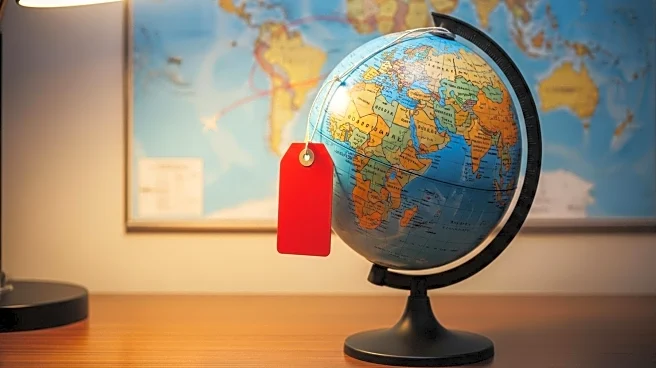What is the story about?
What's Happening?
The rising costs of travel are significantly affecting how Americans plan their vacations, according to a report. Since the pandemic, travel expenses have increased by 20%, driven by higher prices for gas, lodging, and recreation. Airfares have also risen, albeit more slowly, while restaurant food and beverage costs have surged by over 30%. These increases are part of a broader trend of inflation affecting housing, groceries, and power, leaving Americans with less discretionary income. As a result, many are reconsidering their travel plans. For instance, Ammy Woodbury from Santa Clara, California, who used to visit Disneyland three times a year, now plans to go only once due to the increased costs. Similarly, Chris Neagle from Battle Creek, Michigan, has opted for a domestic trip to Vermont instead of an international vacation to Ireland. The trend shows a shift towards more domestic travel, with people opting for road trips and shorter, nearby destinations.
Why It's Important?
The impact of rising travel costs is significant for both consumers and the travel industry. For consumers, the increased expenses mean less frequent and shorter trips, affecting their leisure and family time. This shift could lead to a decline in revenue for the travel industry, particularly in sectors catering to middle- and lower-income travelers. On the other hand, luxury travel continues to thrive, indicating a widening gap in travel accessibility. The trend towards domestic travel could benefit local economies, as more Americans choose to explore nearby destinations. However, the overall reduction in travel frequency could have long-term implications for the tourism industry, potentially leading to job losses and reduced economic activity in regions dependent on tourism.
What's Next?
As inflation continues to affect travel costs, the industry may need to adapt by offering more affordable options or promotions to attract budget-conscious travelers. Additionally, there could be increased demand for domestic travel services, prompting businesses to enhance their offerings in this area. Policymakers might also consider measures to address inflation and support the travel industry, ensuring it remains accessible to a broader range of consumers. The ongoing economic conditions will likely influence travel trends, with potential shifts in consumer behavior and industry strategies.
Beyond the Headlines
The current travel trends highlight broader economic and social issues, such as income inequality and the impact of inflation on everyday life. The shift towards domestic travel could foster a greater appreciation for local destinations and promote sustainable tourism practices. However, it also underscores the challenges faced by international tourism markets, which may struggle to recover fully without the return of American travelers. The situation calls for innovative solutions to balance economic growth with consumer affordability and accessibility.
















